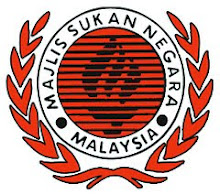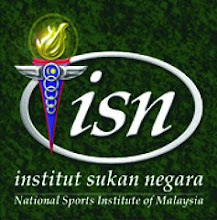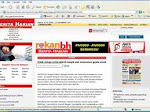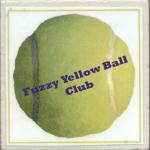Categories of Ethic
1. Computer ethic
2. Internet ethic
1. Computer ethics
Field of study as one that examine “ethical problems aggravated, transformed ar created by computer technology”. (Walter Maner,1976)
Computer ethics studies the way in which computers “pose new versions of standard moral problems and moral dilemmas, exacerbating the old problem, and forcing us to apply ordinary moral norms in uncharted realms”. (Deborah Johnson,1985)
Moral guidelines that govern the use of computers, networks, and information systems
Computer Ethics For Educators
An educator will not use a computer to harm other people.
An educator will not interfere with other’s computer work.
An educator will not look other’s computer file.
An educator will not use a computer to steal.
An educator will not use a computer to lie.
An educator will not copy or use software without paying for it.
An educator will not use other’s computer resources without permission.
An educator will not use other’s work.
An educator will think about the social impact of the programs he or she creates.
An educator always will use a computer in a way that shows respect and consideration for other people.
Information Privacy
The right of individuals and organizations to deny restrict the collection and use of information about them
Unauthorized collection and use of information
• Electronic profiles
• Federal and state laws
Phishing
• Email attempting to obtain personal and financial information
Spam
• An unsolicited e-mail mess or newsgroup posting sent to many recipients or newsgroups at once
• Average user receives more than 1,000 spam email messages each year
• Anti-spam campaigns
• Anti-spam program
Privacy Laws
• Business or government agencies should only collect information necessary to carry out their functions
• Restrict data access to those who must use it to perform job duties
• Release personal information only after agreement to disclosure by individual
• Must inform the individual when collecting information
Employee and Student Monitoring
• Use of computers to observe, record, view, and review an individual’s use of a computer
• Policies of computer use
• Acceptable Use Policy (AUP)
Copyright Laws
• Copyright Act of 1976
• Illegal copying
• Fair use
-Copyright information on Web pages
• Teacher and student Web pages
• Copyright laws do protect these pages
• Public domain Web sites
• CDs and DVDs with images, graphics, audio, and video clips
• Guidelines for creating Web pages
Web Page Guidelines
Always protect the identity of your students.
Never list student last names, telephone numbers, home addresses, or email addresses.
Use only first names of students on a web site, but never in conjunction with other identifying information, such as photograph.
Use caution when including digital pictures of classrooms: avoid pictures that show close-up of students.
Never provide links to sites that are not appropriate for K-12 students or educational settings.
List the function of all linked web pages. Link only to pages that inform, explain, or teach a concept of curriculum area to students. Beware of linking to web sites that persuade students.
Avoid providing links to site whose primary purpose is selling noneducational products and services, unless relevant to the subject under discussion.
Avoid linking to web pages that are not updated on a regular basis.
Provide links to sites that help you achieve instructional and curriculum goals.
Avoid discussing controversial issues on web site or linking to web sites that discuss controversial issues, unless these issues are part of your curriculum.
Carefully read and follow all guidelines and policies that your school district provides.
2. Internet ethic
Internet ethics generally focus on the appropriate use of online resources. A broad overview of Internet ethics was addressed by the Internet Architecture Board (IAB) in 1989, using recommendations from the Division Advisory Panel of the National Science Foundation Division of Network, Communications Research, and Infrastructure. The aim of the resulting document was to give general guidelines of web ethics instead of providing hard-and-fast rules about online usage. Known as Request for Comments (RFC) 1087, the document is still held up as the standard for ethics issues online.
Internet Ethics and Objectionable Materials
Pornographic material
Racist literature, gambling
Incorrect or inappropriate material
• Inaccurate information
Recent Government Actions
• Children’s Internet Protection Act
-Protects children from obscene, pornographic, and other information considered to be harmful to minors
Parental Controls
• Rating systems
-ICRA
• Filtering software programs
• Check Internet browser’s history
Educational Controls
• Acceptable Use Policies (AUP)
Use of network is a privilege, not a right
Behave as if you are a guest on the Internet
Rules concerning objectionable sites
Rules concerning copyright issues
Outline proper use of equipment
Online safety and personal information
Consequences of violating rules
• Curriculum pages
Acts as guides for students
Sites are pre-evaluated by teachers
Eliminates typing mistakes when typing URLs
• Teacher observation
Final measure to prevent students from accessing
objectionable and inappropriate materials
Instruct students on use of Back button on the
browser
understanding of ethical concepts
Tuesday, September 7, 2010
Ethic
Posted by ronnie ron at 1:43 AM 0 comments
Labels: general knowledge
Sunday, August 29, 2010
Kejohanan Piala Dunia Badminton
Aksi cemerlang gandingan pemain bergu badminton negara membolehkan mereka melayakkan diri ke peringkat akhir Kejohanan Piala Dunia. Namun pemain No.1 dunia,Lee Chong Wei tersungkur di peringkat separuh akhir. Mutu permainan Lee Chong Wei hangat dibahaskan. untuk maklumat lanjut,sila klik link..
http://www.bharian.com.my/bharian/articles/Koo-Tankefinal/Article
Posted by ronnie ron at 7:31 AM 0 comments
Informasi Bola Baling
Permainan bola baling merupakan salah satu sukan gelanggang yang lasak dan memerlukan kekuatan fizikal,mental taktikal dan teknik yang sempurna bagi membentuk pasukan yang mantap dan digeruni.Pada 9-10 Oktober 2010, pelajar sains sukan akan menganjurkan kejohanan Bola Baling Tertutup dan Jemputan UMS yang akan berlangsung di Kompleks Sukan UMS sabah. Oleh yang demikian, sesiapa yang berminat mendalami pengetahuan berkenaan bola baling dan bermain bola baling dengan baik,sila klik link dibawah:).semoga berjaya.
Posted by ronnie ron at 3:33 AM 0 comments
Labels: sukan gelanggang
Saturday, August 28, 2010
Informasi Tenis
Salam Sejahtera, kepada anda yang berminat dengan sukan tenis atau sesiapa yang mengambil jurusan sukan yang mempelajari sukan tenis, rebutlah peluang ini untuk menimba pengetahuan. Kukuhkan teori anda dan anda akan menjadi seorang guru atau jurulatih yang hebat. Bagaimana caranya? klik sahaja link saya: tennis drills. Semoga berjaya:)
Posted by ronnie ron at 8:32 PM 0 comments
Labels: sukan gelanggang
Subscribe to:
Posts (Atom)










